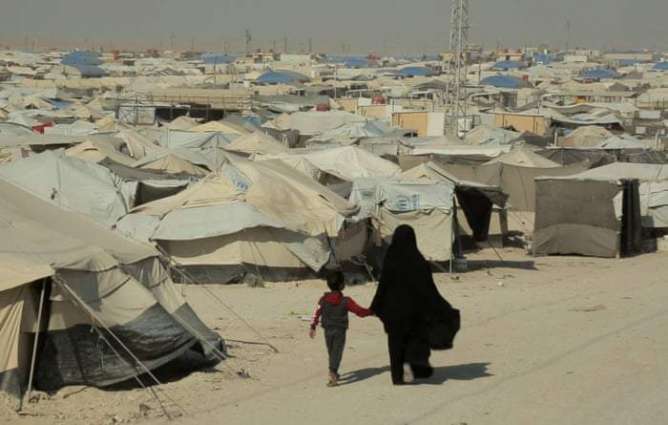Inhabitants of the Al-Hawl refugee camp, which houses over 30,000 children, lack access to basic medical care and live in critical and life-threatening conditions, Ahmad Kazem, the head of the Damascus-based Syrian Human Rights Network, told Sputnik
BEIRUT (Pakistan Point News / Sputnik - 19th August, 2020) Inhabitants of the Al-Hawl refugee camp, which houses over 30,000 children, lack access to basic medical care and live in critical and life-threatening conditions, Ahmad Kazem, the head of the Damascus-based Syrian Human Rights Network, told Sputnik.
The Al-Hawl camp is located in the north of Syria controlled by the Arab-Kurdish Syrian Democratic Forces (SDF). According to various estimates, the camp is home to 65,000-70,000 refugees, mostly women and children from the families of Islamic State terror group (banned in Russia) militants.
"All residents of the camp are living in critical conditions, without basic living conditions, which is a crime against humanity. The Al-Hawl camp is isolated from the outside world, and more than 30,000 children live there. As a result of severe conditions, children are dying from poisoning or undernutrition, heart defect, anemia and lack of medical personnel," Kazem said.
According to the rights activist, international organizations take no action, being indifferent to Syrians and foreigners living in the camp.
"The main reason for the current critical situation is the lack of aid and food due to the difficulty of delivering them to the refugees," he explained.
The humanitarian situation, he went on, is complicated by the activities of the US-backed SDF forces and other armed groups, who confiscate international humanitarian shipments and then distribute them for a fee.
"Another reason for children's deaths is isolation under the pretext of fighting the spread of the coronavirus, which reduced the number of medical personnel working in the camp to a minimum," Kazem added, urging the international community to intervene.
According to the latest data from Syrian human rights activists, the United Nations sent 130 trucks with food and basic necessities to Al Hawl on March 6, but only 40 of them reached the camp.
Syria and Russia have repeatedly expressed concerns over the plight of those living in the camp located in the area occupied by US-backed forces.




